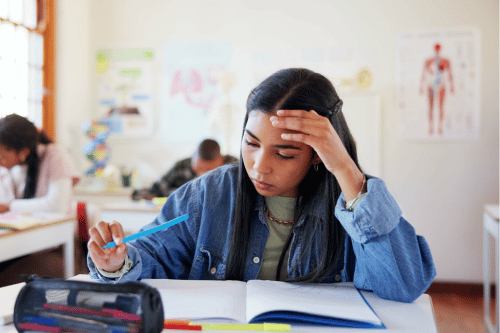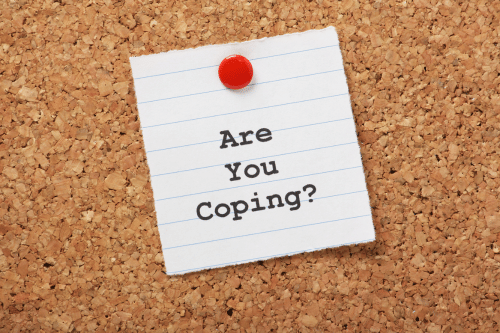Teen Coping Skills: Helping Adolescents Manage Stress and Emotions
Healthy coping skills help teens manage stress, regulate emotions, and handle everyday life. Without these tools, stressful situations can lead to long-term stress, chronic stress, or even a mental health crisis. At Adolescent Mental Health in Orange County, we support mental health development by teaching effective coping strategies that improve both mental health and physical health.
Understanding Coping Skills
Definition of Coping Skills
Coping skills are healthy habits and strategies teens use to manage difficult situations. These can include physical activity, creative activities, or mindfulness techniques. When used consistently, these methods reduce mental stress and improve emotional well-being.
Timing and Situations for Use
Skills for teens are useful during moments of excess stress. Teens may need coping mechanisms during academic pressure, family conflict, or social challenges. Whether they’re facing the divorce of parents or ongoing family discord, healthy coping strategies help them respond with resilience.
Long-Term Benefits of Effective Coping Skills
Coping strategies used during this life stage can support teens their entire lives. Early learning leads to fewer mental health disorders, stronger social interaction, and more stable stress management habits in adulthood. Teens who use stress management skills can better reach their goals in life.
Importance of Coping Skills for Teens

Managing Stress and Anxiety
Teens today report stress levels at an all-time high. According to JAMA Pediatrics Stress research, signs of stress in teens often include feeling of tiredness, muscle tension, negative self-talk, or withdrawal. Healthy coping skills like journaling, mindfulness activity, or blowing bubbles can help keep stress in check and prevent a continual feeling of emotional strain.
Lifelong Advantages of Early Learning
Coping tools give teens the ability to manage long-term stress and prevent mental health crises. Teens who learn early how to recognize feelings of anxiety or acute anxiety gain control over negative feelings. These healthy habits support emotional growth, reduce the need for medication for anxiety, and promote life with resilience.
Strategies to Teach Coping Skills
Role of Parents and Caregivers
Parents and caregivers can support mental health by encouraging daily practice of coping tools. Family game nights, inspirational movie viewing, or family movie night can serve as a day of activity that supports emotional connection. Activities for children ages 12 and up, like a walk or jog – Parents alongside their teen, help reduce feelings of tension.
Modeling Coping Behaviors
Teens notice how adults handle stress. Parents who listen to music with birds singing, squeeze a stress ball, or use positive affirmations show teens how to respond in tough moments. Modeling these responses helps teens develop mental health habits for everyday life.
Effective Coping Strategies for Teens

Mindfulness and Meditation
Mindfulness techniques help reduce feelings of anxiety and boost emotional focus. Teens can try breathing exercises, muscle relaxation techniques, or relaxing sounds like “3-hour relaxing music.” Practicing mindfulness daily is an essential stress reliever and can prevent mental health disorders.
Physical Activity
Physical activity is proven to reduce mental stress and improve mood. Teens can go for a jog, play a sport, or simply take a walk. Even dancing or stretching can reduce stress levels and relieve muscle tension.
Creative Expression
Drawing, painting, or playing a musical instrument like a guitar helps teens express negative feelings. Creative activities support mental health care and offer lots of stress relief. At our center, we often encourage art or music therapy to support stress management.
Structured Problem-Solving
Breaking down difficult situations into smaller steps helps teens feel less overwhelmed. This teaches them to approach daily life with clarity. It’s a helpful skill during school stress, friend problems, or family financial struggles.
Social Support
Good friends are essential. A strong network of friends provides a space for teens to feel heard and supported. Encouraging teens to talk with others helps lower stress and reduce feelings of isolation.
Professional Help
If a teen shows signs of being a once-active teen who now feels withdrawn or anxious, speaking with a mental health professional can help. Our mental health services in Orange County connect teens with licensed therapists who offer expert health advice, diagnose mental health disorders, and provide FDA-approved medication if needed for effective anxiety treatment.
Integrating Coping Skills into Daily Life

Routine Practice of Coping Techniques
Healthy coping skills work best when practiced often. Encourage your teen to choose a favorite activity, whether it’s listening to calming music, blowing bubbles, or writing in a journal. Practicing these activities regularly turns them into lifelong tools.
Combining Multiple Strategies
Using several coping tools together increases success. A teen might draw after school, talk with a good friend, and go on a walk with family. Mixing methods keeps stress management flexible and engaging.
Encouraging Open Communication
Teens should feel comfortable sharing their feelings. Parents can create a safe space by listening with patience. Feedback from teens helps parents understand what works and what doesn’t.
Role of Parents and Guardians
Support is key. Parents should guide their teens while encouraging independence. Making space for teens to manage stress on their own while knowing help is available builds confidence.
Encouraging Professional Assistance
When healthy coping strategies are not enough, it’s okay to seek help. A mental health professional can support teens dealing with anxiety and depression or other mental health disorders. Our team is here to help teens develop strong mental health habits through individual sessions, group support, and structured programs.
Adolescent Mental Health in Orange County is here to support teens in building strong stress management skills. Whether your teen needs coping tools for school, social issues, or emotional struggles, our programs offer a space for teens to grow, learn, and thrive. Contact us today to learn more about our mental health services.










